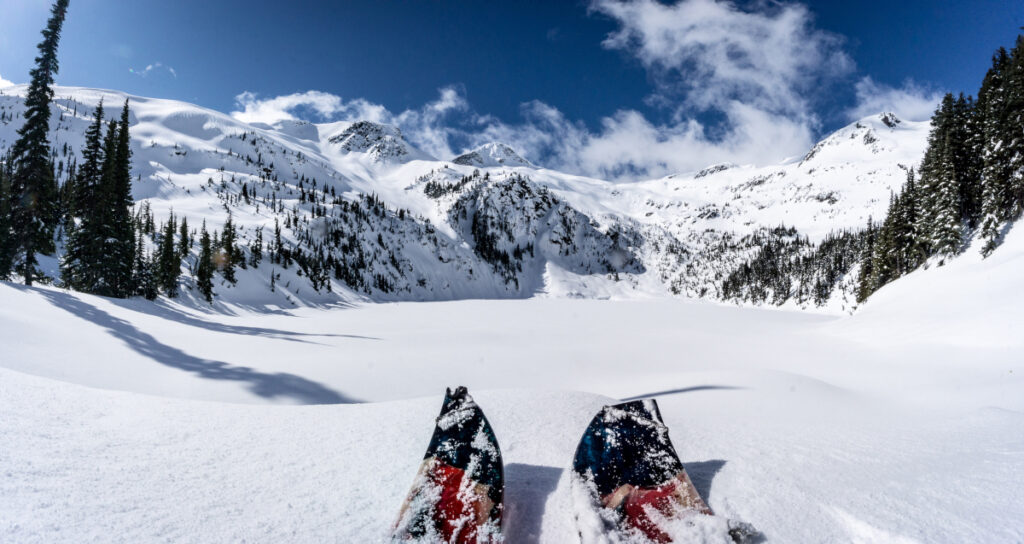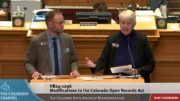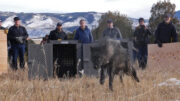Update: SB 21-184 died on a 4-1 vote Thursday, Apr. 15, in the Senate Agriculture and Natural Resources Committee.
By Kevin Fixler
A dozen skiers and snowmobilers died in avalanches in Colorado during winter 2020-21, primarily in the backcountry, which sadly matched a state record set in 1993. The total number of deaths was the most of any state this season, a distinction held by Colorado for the past 70 years.
The public has access to such data because it is closely tracked by the Colorado Avalanche Information Center, a Boulder-based state agency. The statistics are used for a variety of purposes, including making forecasts, reviewing trends and promoting education and safety in the increasingly popular backcountry playground.

Even more people, an average of 13 each year, died while skiing or snowboarding inbounds at Colorado’s ski resorts during the 2010s. The single-season total reached a high of 22 fatalities during 2011-12.
But we know these numbers only because the Summit Daily News built a database a few years ago using coroners’ records obtained through the Colorado Open Records Act (CORA). Ski industry officials often note that resort deaths are incredibly rare, at roughly a one-in-a-million chance of occurrence. However, we still don’t fully understand how the state’s deadliest seasons stack up against one another because the industry and the state’s resorts are not required to divulge fatality stats, and national data released annually lacks detail or is incomplete.
These lessons unfortunately became clear to me when I was the environment and public lands reporter at the Summit Daily living and working in Breckenridge. Each winter, we were frustrated by the limited flow of information from the region’s ski areas regarding safety, major injuries and deaths. That led us to an in-depth investigation into how and why the industry closely guards such data.
For example, it wasn’t uncommon for someone’s death on the slopes — a tragedy no matter how you look at it, with long-lasting effects on the loved ones left behind — to go completely unreported for months, if publicly revealed at all. Even this season two of the four accidental ski deaths in Summit County (one each at Vail Resorts, Inc. properties Breckenridge Ski Resort and Keystone Resort) don’t appear to have ever hit the news. The industry’s approach remains largely, “Don’t call us, we’ll call you,” and yet the phone rarely rang. The resorts’ stubbornness instead forced us to go to each county’s coroner, sometimes paying a fortune in research-and-retrieval fees, to acquire data about incidents at resorts — the majority of which primarily operate through leases on public lands, including the White River National Forest in Summit and Eagle counties.

“Basically, any time you get wind of an accident or fatality, it’s generally not from the ski resort itself, but from a local agency like the sheriff’s office,” said Michael Roberts, a longtime Westword reporter who has tracked the subject for more than a decade. “We’re talking about losses of life here and talking about serious life-altering injuries. These are things that should be shared publicly, particularly for the industry that is the trademark of Colorado.”
A bill introduced in the legislature could finally make that a reality, but it faces its own uphill climb. Senate Bill 21-184 comes before the Senate Agriculture and Natural Resources Committee on Thursday and must win a simple-majority vote from the five-member panel to move forward.
Similar bills, seeking collection and public release of ski fatality and serious injury data, plus each resort’s safety management plan, twice passed in California but were vetoed by then-Govs. Arnold Schwarzenegger and Jerry Brown, respectively. Schwarzenegger stated at the time that the proposed law “may place an unnecessary burden on resorts,” and he refused to sign the bill.
Now it’s Colorado’s chance to be a leader and set the tone for the rest of the nation by passing what supporters call a common-sense law and a matter of government transparency. Although Democratic Gov. Jared Polis has yet to take a formal position on the bill, he signaled while a member of Congress his support for such a concept in a 2017 statement issued by his office to Westword.
“Safety and transparency for our federal lands should be our top priority,” Polis’ statement read. “I think improving reporting requirements and transparency in the leases under which operators use our public land including White River National Forest can help increase consumer confidence and encourage safety. People should be able to look at basic safety data when they are deciding where to ski.”
Unsurprisingly though, the ski data transparency bill faces stiff opposition from the ski industry — a primary driver of the state’s tourism-rich economy to the tune of an estimated $5 billion each year. That level of clout also sets up the industry to be both a powerful and well-funded lobby.
“I don’t feel this is a heavy burden to the industry,” said Sen. Tammy Story, D-Golden, a lifelong skier who is co-sponsoring the bill. “This is data that resorts are likely, by their own admissions, already collecting. This is not creating something new or a whole-new process, but just asking there be transparency of data to allow opportunities for research and for the public to be aware of what’s happening on the mountain.”
And yet, the bill is openly opposed by the state’s ski industry trade association, Colorado Ski Country USA, plus each of its 22 member resorts, according to Chris Linsmayer, the group’s spokesman. “We’ve seen this effort fail in other states and we expect it to fail here,” the trade association said in a statement to The Denver Post. (Vail Resorts, Inc., a non-member of Colorado Ski Country USA and owner of several of the state’s most popular resorts, declined the chance to comment over two days’ time.)
The other co-sponsor of SB 21-184, Sen. Jessie Danielson, D-Wheat Ridge, is the only member of the Senate Agriculture and Natural Resources Committee to not have accepted large campaign contributions over the past decade from Colorado Ski Country USA and Vail Resorts, according to the Colorado Secretary of State’s website. Sen. Kerry Donovan, D-Vail, the committee’s chair, has received maximum donations from political action committees for both organizations, plus individual Vail Resorts employees, dating to her first run for office in 2014.
“I have concerns about the bill,” Donovan said in a phone interview Monday. “I feel like I understand some of the goals that the bill’s sponsors are trying to achieve, but I’m just not confident this bill is the pathway toward those goals.”
Nevertheless, Danielson said she remains hopeful the bill will get to Polis’ desk.
“Unless we pass a bill like this, this type of thing remains hidden and secret to the public. You shouldn’t have to be a reporter issuing CORA requests or what have you to get some of these most basic figures about fatalities and injuries,” she said. “I think that all of the resorts are opposed, and that makes me wonder a little bit, what is that they’re hiding? And I’m hopeful that my colleagues listen to the testimony this week from families impacted by this and say to themselves, ‘Let’s give this a shot.’”
Kevin Fixler is a freelance journalist based in Boise, Idaho.
Watch a 2017 video report on skiing fatalities produced by the Summit Daily News:
Follow the Colorado Freedom of Information Coalition on Twitter @CoFOIC. Like CFOIC’s Facebook page. Do you appreciate the information and resources provided by CFOIC? Please consider making a tax-deductible donation.




